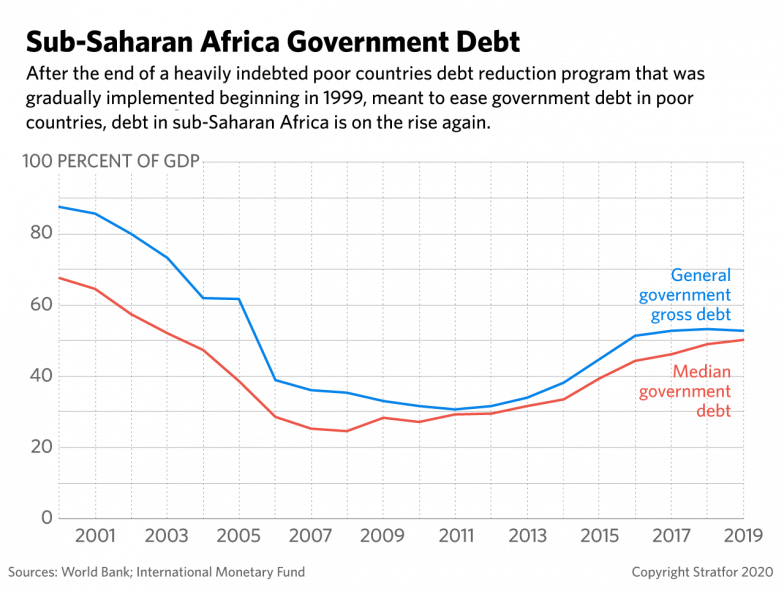Analysis Of PwC's Closure Of Offices Across Nine African Nations

Table of Contents
The recent announcement of PwC's decision to close offices across nine African nations sent shockwaves through the business community. This surprising move by one of the world's leading professional services networks raises significant questions about the future of business in Africa and the evolving strategies of global corporations. This article will analyze the reasons behind PwC's office closures, examine their impact on various stakeholders, and explore the potential long-term implications for the African business landscape.
Reasons Behind PwC's Office Closures in Africa
PwC's decision to consolidate its presence in Africa is a complex issue with several contributing factors. Understanding these factors is crucial to assessing the long-term implications of these closures.
Strategic Restructuring and Consolidation
PwC's closure of offices in nine African nations is part of a broader global strategic restructuring initiative. The firm is likely seeking to improve operational efficiency, reduce costs, and potentially shift towards a more centralized, technology-driven service delivery model. This strategy isn't unique to PwC; many multinational corporations are undergoing similar transformations in response to evolving economic landscapes and technological advancements.
- Cost-cutting measures: This likely includes streamlining administrative functions, reducing overhead costs associated with maintaining multiple physical offices, and optimizing resource allocation.
- Consolidation process: The closure process likely involved detailed assessments of the profitability and operational efficiency of individual offices, leading to the selection of specific locations for closure. PwC may have prioritized offices with strong client bases and strategic importance for its future African operations.
- Official statements: PwC's official communications regarding these closures should be reviewed for further insights into their strategic rationale.
Economic Challenges in Affected African Nations
The economic climates of the nine affected African nations undoubtedly played a role in PwC's decision. Several of these countries face significant economic challenges, which may have rendered the continued operation of certain offices unsustainable.
- Affected Nations: [Insert list of nine affected nations here]. Further research is needed to confirm which countries are involved.
- Economic Challenges: Each nation faces unique challenges, including political instability, fluctuating currency exchange rates, infrastructure limitations, and decreased foreign direct investment. Specific data and sources should be provided for each nation to illustrate the economic context. (e.g., referencing IMF reports or World Bank data).
- Impact on PwC: These economic headwinds may have impacted the demand for PwC’s services, making it financially challenging to maintain a physical presence in these markets.
Changing Client Demands and Technological Advancements
The shift towards remote work, facilitated by technological advancements, has significantly altered client demands and the way professional services are delivered. PwC's decision reflects the changing dynamics of the business landscape.
- Changing Client Demands: Clients increasingly expect seamless digital access to services, regardless of location. This trend reduces the need for extensive physical office infrastructure.
- Remote Work Capabilities: PwC, like many firms, has invested heavily in digital technologies allowing for remote work and virtual collaboration. This capability reduces reliance on physical office spaces.
- Technology Investments: PwC's investment in technology solutions enables more efficient service delivery across geographical boundaries, rendering some physical offices less crucial.
Impact of the Closures on Various Stakeholders
PwC's actions have far-reaching consequences for various stakeholders, including employees, clients, and the broader African business landscape.
Effect on PwC Employees
The closure of offices inevitably resulted in job losses. The extent of job losses and the support provided to affected employees are crucial aspects of this analysis.
- Number of employees affected: Determining the precise number of employees affected requires further investigation and access to PwC's internal data.
- Severance packages: The details of severance packages offered to departing employees are important indicators of PwC's commitment to its workforce.
- Support initiatives: Information on retraining programs, relocation opportunities, or other support initiatives for affected employees is vital for a comprehensive assessment.
Consequences for Clients
PwC's clients in the affected regions will need to adapt to the changed service delivery model. This could lead to disruptions and challenges in accessing services.
- Client disruptions: The transition to alternative service delivery models may cause temporary disruptions to client service.
- Finding alternative services: Clients might need to seek alternative service providers, potentially leading to delays and increased costs.
- Impact on client relationships: The closure could strain existing client relationships, requiring proactive management by PwC.
Broader Implications for the African Business Landscape
The closures raise broader questions about the attractiveness of Africa as a business destination and the confidence of international firms in the region.
- Foreign Investment: The decision could negatively affect foreign investment confidence in the affected nations.
- Business Confidence: The closures might undermine confidence among other international businesses operating in Africa.
- Long-term consequences: The long-term impact on the overall African business landscape requires ongoing monitoring and analysis.
Future Outlook and PwC's African Strategy
PwC's future strategy in Africa is crucial to understanding the long-term implications of these closures. While some offices have closed, the firm will likely maintain a significant presence in other African nations.
- Remaining African Offices: Identifying the locations of PwC's remaining offices and their strategic importance is crucial.
- Future Strategy: Understanding PwC's future plans for its African operations will reveal their commitment to the continent.
- Predictions for Future Growth: Assessing the potential for future growth or contraction in the African market requires further research.
Conclusion
PwC's closure of offices across nine African nations is a complex event driven by a combination of strategic restructuring, economic challenges in affected nations, and evolving client demands. The impact extends to employees, clients, and the broader African business landscape. Understanding the reasons, assessing the impact, and analyzing the future outlook of PwC's African strategy is essential for navigating the changing dynamics of the African business environment.
Call to Action: Stay informed about developments related to PwC Africa Office Closures. Share your thoughts and perspectives on the issue in the comments section. Further research into the implications of these closures on specific African economies is encouraged. [Consider linking to PwC's official statements here].

Featured Posts
-
 Nine Sub Saharan African Countries Affected By Pw Cs Departure
Apr 29, 2025
Nine Sub Saharan African Countries Affected By Pw Cs Departure
Apr 29, 2025 -
 From Street Sweeper To Celebrity The Story Of Macario Martinez
Apr 29, 2025
From Street Sweeper To Celebrity The Story Of Macario Martinez
Apr 29, 2025 -
 Pw C Cuts Ties Withdrawal From Multiple Countries Following Investigations
Apr 29, 2025
Pw C Cuts Ties Withdrawal From Multiple Countries Following Investigations
Apr 29, 2025 -
 Louisville Mail Delivery Delays A Union Leaders Assessment
Apr 29, 2025
Louisville Mail Delivery Delays A Union Leaders Assessment
Apr 29, 2025 -
 Analysis Premier Leagues Path To A Fifth Champions League Place
Apr 29, 2025
Analysis Premier Leagues Path To A Fifth Champions League Place
Apr 29, 2025
Latest Posts
-
 Adhd
Apr 29, 2025
Adhd
Apr 29, 2025 -
 I Think I Have Adult Adhd Seeking Help And Support
Apr 29, 2025
I Think I Have Adult Adhd Seeking Help And Support
Apr 29, 2025 -
 Navigating A Suspected Adult Adhd Diagnosis
Apr 29, 2025
Navigating A Suspected Adult Adhd Diagnosis
Apr 29, 2025 -
 Diagnosed With Adult Adhd Your Action Plan
Apr 29, 2025
Diagnosed With Adult Adhd Your Action Plan
Apr 29, 2025 -
 Adult Adhd Next Steps After A Suspected Diagnosis
Apr 29, 2025
Adult Adhd Next Steps After A Suspected Diagnosis
Apr 29, 2025
